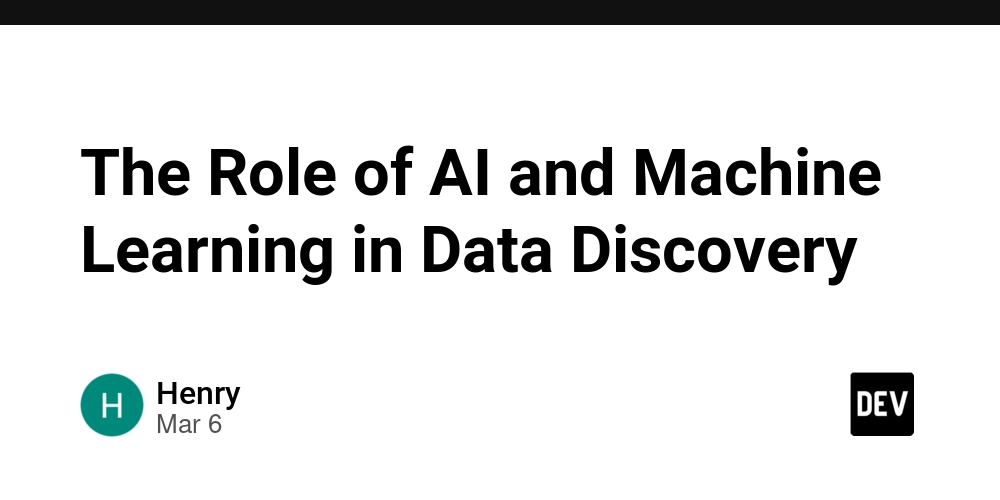The Developer in AI Training: Opportunities and Challenges in the Mobile Industry
AI has become a hot topic in development, especially in mobile. As a front-end developer, I see the massive value AI can bring to the table—it's not just about automating tasks but also about enhancing user experience and making apps more efficient. So, let’s dive into how AI works in the mobile development industry, particularly from a front-end developer's perspective. Why Programmers Like AI? — The Value and Role in Mobile Development from my perspective: AI Boosts Efficiency: AI allows for faster development by automating mundane tasks, giving developers more time to focus on innovative features. Completeness and Gap Filling: AI can identify missing elements or areas that need improvement in a project, helping fill in the gaps, whether it’s in terms of design, code, or user experience. Simplifying Repetitive Tasks: Sometimes, when editors can’t handle a task in one action (such as color scheme adjustments), AI can step in and make quick, global changes to configurations like color settings. This not only speeds up development but also ensures consistency. Enhancing Mobile and Front-End Development: When developing mobile apps or front-end interfaces, AI can suggest interactions and animations that developers may not have initially considered, enhancing the user experience and making the application more user-friendly. AI Developer with Data Cleaning Responsibilities: Role Overview, Challenges, and Pros & Cons Role Overview: As an AI Developer, especially in mobile development, there’s often an added layer of responsibility: data cleaning. A lot of the time, developers working on AI models also have to clean, preprocess, and structure the data before feeding it to machine learning algorithms. This can include tasks like handling missing data, ensuring data consistency, and optimizing datasets to ensure models perform at their best. The goal is to prepare quality data for training AI, which will later be integrated into mobile apps. Challenges: Data Quality Issues The reality is that data isn't always perfect. You may have incomplete, noisy, or inconsistent data, and if that’s not properly handled, the AI model might perform poorly, especially on mobile, where resources are more limited. Performance Optimization Mobile devices, by nature, have constraints. An AI model that performs well on a desktop may need serious optimization to run smoothly on mobile. Striking the right balance between accuracy and performance is a key challenge, and it requires the developer to be resourceful. Complexity of Data Data comes in all shapes and sizes—text, images, audio, you name it. Handling diverse data types and addressing problems like data imbalance or bias requires attention to detail and can be time-consuming. Multi-tasking This is a big one. Not only do you have to build AI solutions, but you’re also responsible for ensuring that the data used for training is in perfect shape. It can feel like a juggling act—one that might get overwhelming at times. Pros: Diverse Skillset: Gains experience in both AI development and data science, opening doors to varied roles. Growing Demand: With AI's increasing use, the need for AI developers with data cleaning expertise continues to rise. Impactful Work: Directly contributes to improving AI model accuracy and real-world problem-solving in mobile apps. Cons: Repetitive Tasks: Data cleaning can be tedious and monotonous, especially with large datasets. High Pressure: Balancing AI development and data preprocessing can lead to stress and tight deadlines. Skill Intensity: Requires a deep understanding of machine learning, data cleaning, and mobile optimization. Overall, this role offers a rewarding career path for those passionate about AI and data science but requires managing the challenges of multi-tasking and complex data issues.

AI has become a hot topic in development, especially in mobile. As a front-end developer, I see the massive value AI can bring to the table—it's not just about automating tasks but also about enhancing user experience and making apps more efficient. So, let’s dive into how AI works in the mobile development industry, particularly from a front-end developer's perspective.
Why Programmers Like AI? — The Value and Role in Mobile Development from my perspective:
AI Boosts Efficiency:
AI allows for faster development by automating mundane tasks, giving developers more time to focus on innovative features.Completeness and Gap Filling:
AI can identify missing elements or areas that need improvement in a project, helping fill in the gaps, whether it’s in terms of design, code, or user experience.Simplifying Repetitive Tasks:
Sometimes, when editors can’t handle a task in one action (such as color scheme adjustments), AI can step in and make quick, global changes to configurations like color settings. This not only speeds up development but also ensures consistency.Enhancing Mobile and Front-End Development:
When developing mobile apps or front-end interfaces, AI can suggest interactions and animations that developers may not have initially considered, enhancing the user experience and making the application more user-friendly.
AI Developer with Data Cleaning Responsibilities: Role Overview, Challenges, and Pros & Cons
Role Overview: As an AI Developer, especially in mobile development, there’s often an added layer of responsibility: data cleaning. A lot of the time, developers working on AI models also have to clean, preprocess, and structure the data before feeding it to machine learning algorithms. This can include tasks like handling missing data, ensuring data consistency, and optimizing datasets to ensure models perform at their best. The goal is to prepare quality data for training AI, which will later be integrated into mobile apps.
Challenges:
Data Quality Issues
The reality is that data isn't always perfect. You may have incomplete, noisy, or inconsistent data, and if that’s not properly handled, the AI model might perform poorly, especially on mobile, where resources are more limited.Performance Optimization
Mobile devices, by nature, have constraints. An AI model that performs well on a desktop may need serious optimization to run smoothly on mobile. Striking the right balance between accuracy and performance is a key challenge, and it requires the developer to be resourceful.Complexity of Data
Data comes in all shapes and sizes—text, images, audio, you name it. Handling diverse data types and addressing problems like data imbalance or bias requires attention to detail and can be time-consuming.Multi-tasking
This is a big one. Not only do you have to build AI solutions, but you’re also responsible for ensuring that the data used for training is in perfect shape. It can feel like a juggling act—one that might get overwhelming at times.
Pros:
Diverse Skillset: Gains experience in both AI development and data science, opening doors to varied roles.
Growing Demand: With AI's increasing use, the need for AI developers with data cleaning expertise continues to rise.
Impactful Work: Directly contributes to improving AI model accuracy and real-world problem-solving in mobile apps.
Cons:
Repetitive Tasks: Data cleaning can be tedious and monotonous, especially with large datasets.
High Pressure: Balancing AI development and data preprocessing can lead to stress and tight deadlines.
Skill Intensity: Requires a deep understanding of machine learning, data cleaning, and mobile optimization.
Overall, this role offers a rewarding career path for those passionate about AI and data science but requires managing the challenges of multi-tasking and complex data issues.




























![[Webinar] AI Is Already Inside Your SaaS Stack — Learn How to Prevent the Next Silent Breach](https://blogger.googleusercontent.com/img/b/R29vZ2xl/AVvXsEiOWn65wd33dg2uO99NrtKbpYLfcepwOLidQDMls0HXKlA91k6HURluRA4WXgJRAZldEe1VReMQZyyYt1PgnoAn5JPpILsWlXIzmrBSs_TBoyPwO7hZrWouBg2-O3mdeoeSGY-l9_bsZB7vbpKjTSvG93zNytjxgTaMPqo9iq9Z5pGa05CJOs9uXpwHFT4/s1600/ai-cyber.jpg?#)













































































































































![[The AI Show Episode 144]: ChatGPT’s New Memory, Shopify CEO’s Leaked “AI First” Memo, Google Cloud Next Releases, o3 and o4-mini Coming Soon & Llama 4’s Rocky Launch](https://www.marketingaiinstitute.com/hubfs/ep%20144%20cover.png)





































































































































































































![Rogue Company Elite tier list of best characters [April 2025]](https://media.pocketgamer.com/artwork/na-33136-1657102075/rogue-company-ios-android-tier-cover.jpg?#)







































































_Andreas_Prott_Alamy.jpg?width=1280&auto=webp&quality=80&disable=upscale#)































































































![What’s new in Android’s April 2025 Google System Updates [U: 4/18]](https://i0.wp.com/9to5google.com/wp-content/uploads/sites/4/2025/01/google-play-services-3.jpg?resize=1200%2C628&quality=82&strip=all&ssl=1)








![Apple Watch Series 10 Back On Sale for $299! [Lowest Price Ever]](https://www.iclarified.com/images/news/96657/96657/96657-640.jpg)
![EU Postpones Apple App Store Fines Amid Tariff Negotiations [Report]](https://www.iclarified.com/images/news/97068/97068/97068-640.jpg)
![Apple Slips to Fifth in China's Smartphone Market with 9% Decline [Report]](https://www.iclarified.com/images/news/97065/97065/97065-640.jpg)
































































































































